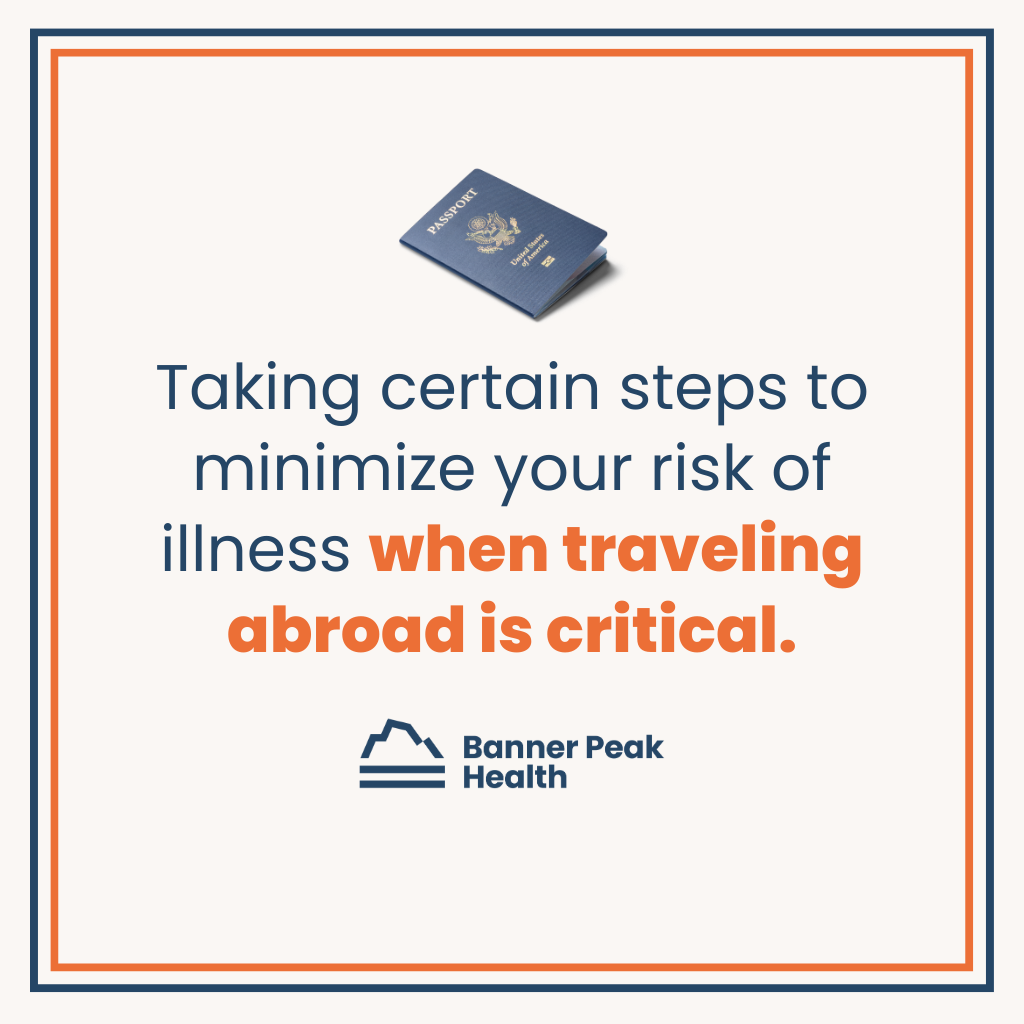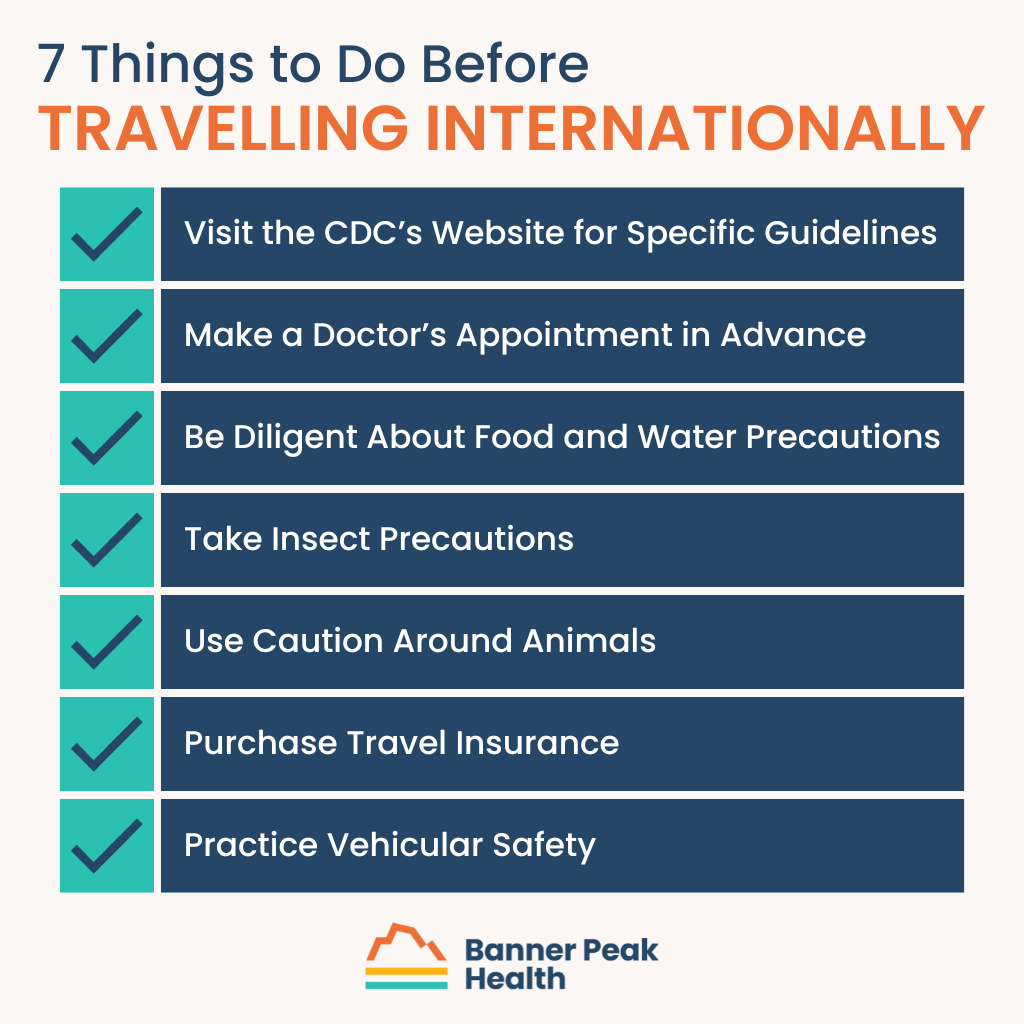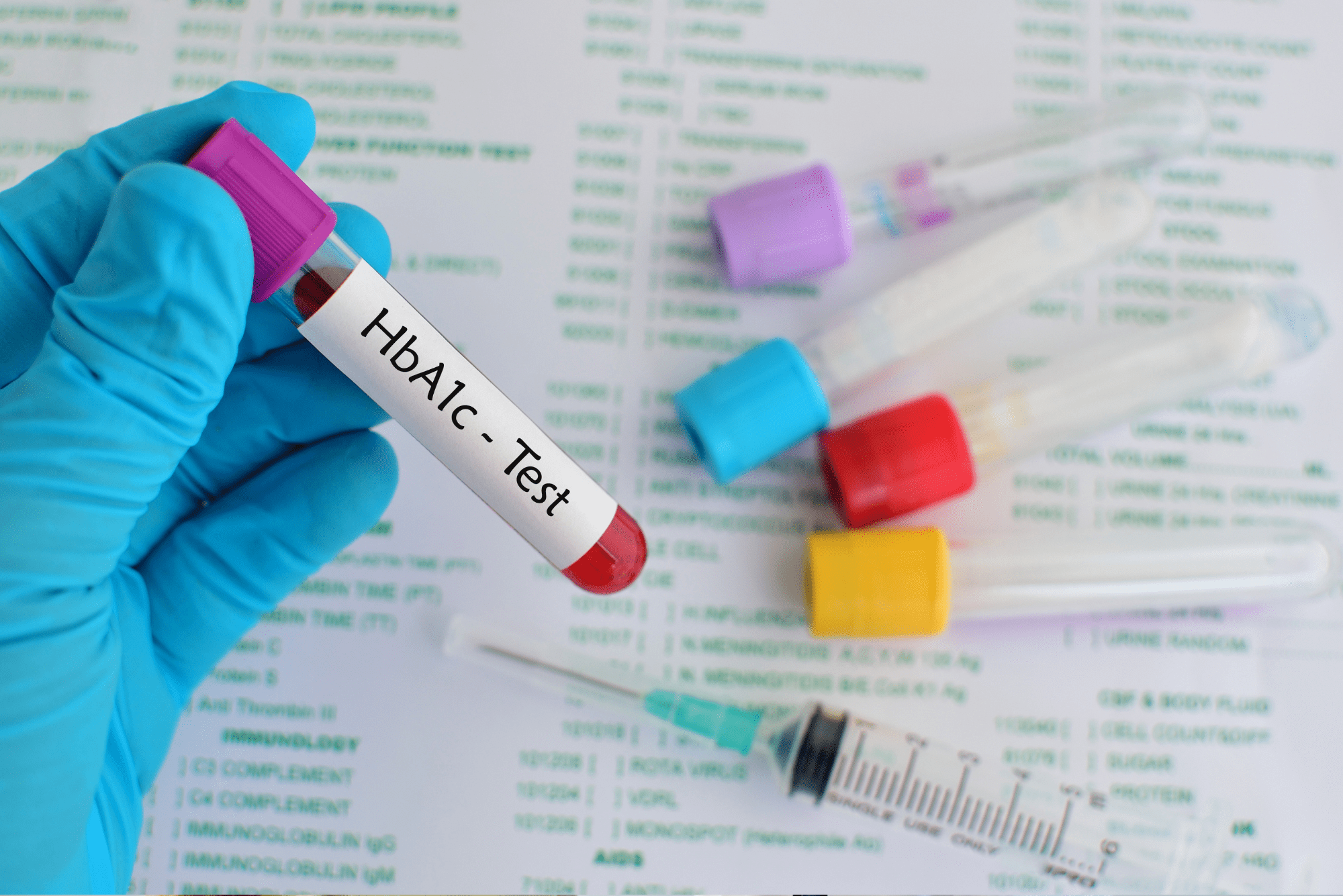Four of my cousins operate a charity hospital in India. Whenever I visit to help out, I take prophylactic malaria medication on Sunday mornings.
One Saturday night, I started shaking, had a 103-degree fever, felt my liver and spleen, and thought, “Oh, great, I have malaria.” I took the pill I would’ve taken in the morning that night, and by the morning, I was well.

Even though I’m a doctor and prepared for everything, I still got sick, which could’ve been disastrous. That’s why taking certain steps to minimize your risk of illness when traveling abroad is critical.
Specifically, there are seven things to do before traveling internationally to ensure you have a healthy trip.
1. Visit the CDC’s Website for Specific Guidelines
The first thing to do before traveling internationally is something you should do as soon as you pick your destination.
The Centers for Disease Control and Prevention (CDC) has a fantastic international travel resource. Choose your destination from their digital list and review the recommended vaccines. You’ll also find information on diseases not preventable by vaccine, such as malaria.
2. Make a Doctor’s Appointment in Advance
The second thing to do before traveling internationally is to see your primary care physician at least four to six weeks before you leave for your trip.
It takes time for vaccines to work and for your body to build immunity. For example, if you’re traveling to Asia, you’ll want full immunity from typhoid and hepatitis A vaccines, which means getting them four to six weeks in advance.
You’ll also need to get any necessary prescriptions and receive instructions on how to take them. Remember my story about the malaria medication I took? If you’re going somewhere where you’ll need a similar medication, you’ll need to get the drug and ask your doctor how to take it.
3. Be Diligent About Food and Water Precautions
If you’re traveling to a third-world country, be diligent about food and water. Avoid raw foods, including raw vegetables, unless you can wash them in boiled or distilled water.
Also, avoid cooked foods served at room temperature. When cooked meat cools, bacteria multiply. Temperatures of 40–140℉ are dangerous.
Always ensure water is boiled or distilled, and only drink water from sealed bottles. In poor countries, people sometimes refill water bottles with local water to sell to tourists. Do not drink water from a container that’s not properly sealed.
Also, avoid ice. It’s easy to overlook — I forgot once myself and ended up with traveler’s diarrhea because I had a drink made with ice frozen from local water.
Local water can cause waterborne illnesses like typhoid, E. coli, parasites, and traveler’s diarrhea. These are serious, sometimes fatal illnesses, and quality medical care isn’t always available overseas.
4. Take Insect Precautions
If you’ll be camping or spending time in the jungle, treat your clothes and gear with permethrin in advance.
Wear insect repellent and cover exposed skin. There are several effective repellent ingredient options to choose from:
- Deet
- The only ingredient proven effective against ticks, which can transmit Lyme disease
- Concentrations over 50% show no additional protective benefit
- Picaridin
- Repels mosquitoes, biting flies, ticks, fleas, and chiggers
- Needs to be reapplied more often than Deet
- Oil of Lemon Eucalyptus (Paramenthane-3,8-diol)
- Natural botanical that repels mosquitoes
- IR3535
- Repels mosquitoes and black-legged ticks
When wearing both sunscreen and insect repellent, apply sunscreen first, then repellent.
You may need to use a bed net to keep mosquitoes and biting flies at bay while sleeping. Bed nets help prevent malaria, yellow fever, dengue fever, chikungunya fever, and more.
5. Use Caution Around Animals
Americans generally take exceptional care of their pets, but pet owners in other countries don’t always practice the same standards.
Aside from obvious risks like African safaris or swimming with sharks, seemingly “harmless” animals, even pets, can cause rabies. Rabies leads to over 59,000 deaths worldwide annually, with 95% occurring in Asia and Africa. If you get bitten or scratched while traveling, immediately clean the wound with soap and seek medical attention.
Smaller creatures also pose a threat. Watch out for arthropods (insects and arachnids, including spiders, ants, and ticks), scorpions, and snakes. These largely depend on where you’re traveling, but always practice caution.
6. Purchase Travel Insurance
One helpful thing to do before traveling internationally is purchase travel insurance. This includes specific types of insurance, such as medical evacuation insurance, in case you contract a dangerous illness or are seriously injured and local medical care doesn’t meet U.S. standards.
7. Practice Vehicular Safety
Motor vehicle accidents are the number one killer of healthy U.S. citizens on foreign soil. Don’t underestimate how different driving is abroad.
For instance, in India, cars, bikes, rickshaws, buses, and trucks share the same road. It can be chaotic and dangerous if you’re unfamiliar with those conditions.
Choose safe vehicles. Avoid motorbikes. Don’t drink and drive or ride with a driver who’s been drinking. Always wear seatbelts and helmets (if applicable). Avoid driving at night, as the lighting can be poor.
Choose larger aircraft (more than 30 seats) whenever possible when flying. Avoid local or unscheduled aircraft, as those pilots may not meet U.S. standards.
What to Include in a Travel Kit
If you consult us ahead of time, we’re happy to help you prepare a travel kit containing basic items appropriate for your destination, such as:
- Sterile gauze
- Ace wrap
- Alcohol swabs
- Antibacterial ointment
- Tylenol
- Advil
- Benadryl
- Topical steroid
- Imodium
- Dramamine
- Antibiotics (in case of traveler’s diarrhea)
Also include your usual medications (in adequate quantities), an EpiPen if you have a history of anaphylaxis, and an extra pair of contact lenses or eyeglasses.
When you speak with your physician, bring your itinerary. Discuss specific activities and destinations so your doctor can help you fully prepare.
Remember, the best time to consult your physician is four to six weeks before your trip, so you can cover everything you need to do before traveling internationally. Call Banner Peak Health to schedule an appointment as soon as you finalize your travel plans.

Barry Rotman, MD
For over 30 years in medicine, Dr. Rotman has dedicated himself to excellence. With patients’ health as his top priority, he opened his own concierge medical practice in 2007 to practice medicine in a way that lets him truly serve their best interests.




